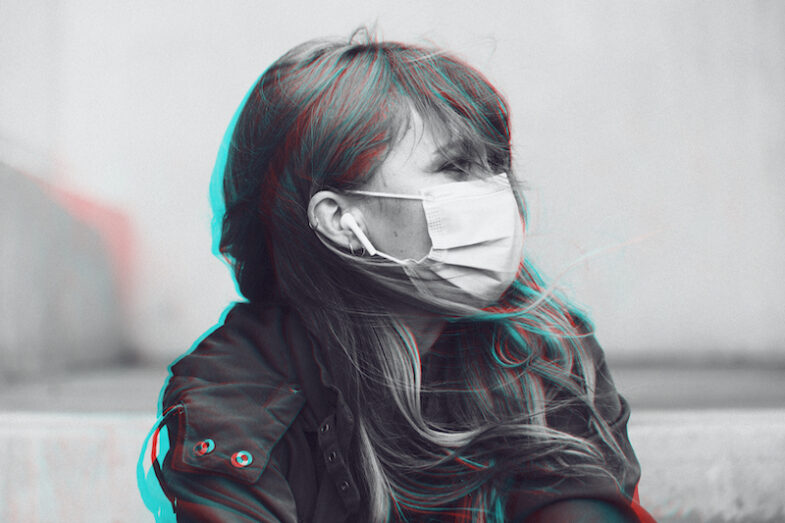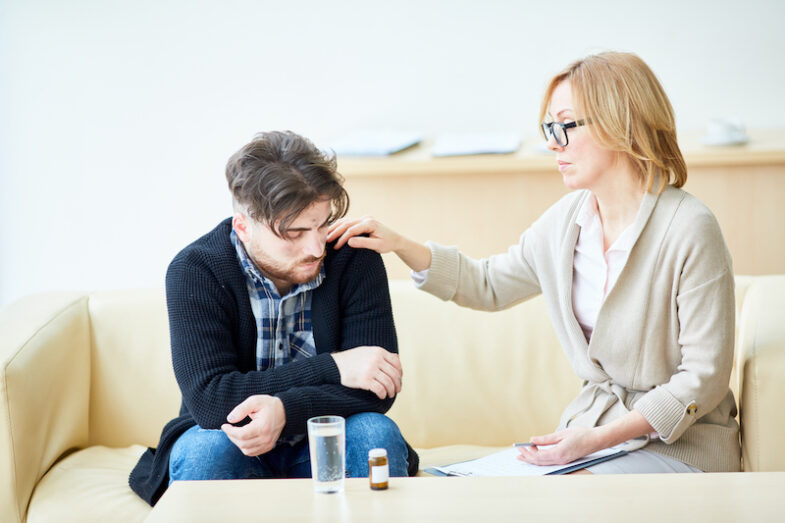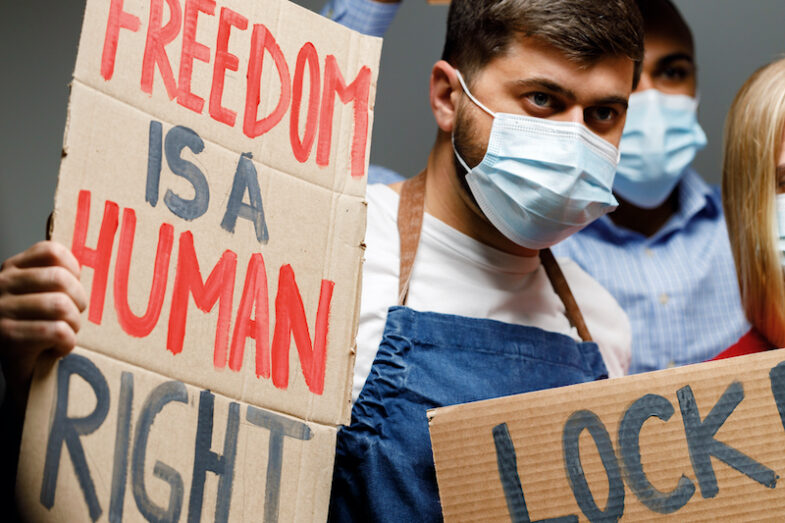Homelessness affects everyone—whether you have personally experienced it or not. It is a complex social problem that affects our communities in many different ways. Chronic homelessness causes strain and financial hardship on our society. These significant costs can add up. They include emergency room visits and hospitalizations, police intervention and incarceration, and the use of mental health, poverty, and homeless programs.
Unity Parenting and Counseling is here to discuss how homelessness affects the community as a public health problem, an economic problem, and a human tragedy. Furthermore, we will describe how Unity Parenting and Counseling strives to mitigate the issue of homelessness within Chicago’s South Side community.
Homelessness Is a Public Health Problem
People who experience homelessness lack resources for basic hygiene and physical and mental health care. As a result, homelessness causes public health problems within the community.
Health Care

Homelessness often keeps people from accessing treatment. This makes health issues more dangerous, more expensive, and increases the risk to society overall. When people experiencing homelessness do get admitted to a hospital, their stay is about four days longer than average, which leads to additional costs to the public.
Homelessness causes serious healthcare issues, including HIV/AIDS, addiction, psychological disorders, and other illnesses that require consistent, long-term care. Additionally, infectious diseases can run rampant in the homeless population.
Covid-19 and Homelessness
The COVID-19 pandemic greatly impacted the homeless population. The CDC-recommended methods for slowing the spread are nearly impossible when experiencing homelessness.
The CDC has warned that people 65 years and older may be at higher risk of becoming severely ill from COVID-19. There are growing numbers of homeless people over the age of 65. Therefore, their risk for illness increases. Additionally, the CDC found that the homeless population ages faster than everyone else due to their harsh living conditions.
The CDC has warned that, like older adults, people with serious medical conditions may be uniquely at-risk of becoming seriously ill due to COVID-19. People experiencing homelessness have an increased risk of having poor health and prolonged illness. Additionally, living outdoors and in crowded areas can lead to health issues.
The homeless population also lacks general wellness care. Crowded shelters and sleeping outdoors make it difficult to ward off illnesses. Those who experience homelessness cannot eat enough nutritious food, get enough sleep, practice basic hygiene, or engage in social distancing. Thus, airborne infections and communicable infections are more likely to occur.
Mental Health

Many people who are homeless struggle with both mental illness and addiction, often using
alcohol and/or drugs to self-medicate an undiagnosed or untreated mental illness. Approximately one-third of the total homeless population includes individuals with serious, untreated mental illnesses. Homeless people who struggle with mental illness and substance abuse are significantly more likely to be hospitalized in a psychiatric hospital. These hospitalizations incur costs that are paid by the public which affects the community.
Homelessness Is an Economic Problem
People who experience homelessness place an increased burden on the government and taxpayers, which impacts the local economy. People without housing are high consumers of public resources and generate expenses, rather than income, for the community.
Incarceration Costs
Similar to the expenses incurred by emergency rooms and hospitals, taxpayer money is also spent on incarceration costs for the homeless. Unfortunately, homeless people spend more time in jail or prison than other populations. This is partially due to the violation of laws that specifically target homeless people, such as panhandling, loitering, or sleeping in cars.
Local Economies and Tourism
The homeless crisis affects local communities due to the struggles between merchants and homeless people and related public policy issues faced by local governments and police departments. Towns that are seeking to increase tourism struggle with ridding their streets of homeless people who are turned out of shelters during the day.
Homelessness Is a Human Rights Problem

Homelessness is a human tragedy. Our own community members live in tents and under bridges. They are vulnerable to inclement weather and violence. They lack dignity and receive no respect. Homelessness brings into question the shared morals and values of a community.
Social Barriers and a Breakdown of Community
Homelessness has a social stigma. Homeless people live in shame and isolation. They need help trying to survive, but they fear being condemned, so they don’t reach out. Additionally, those who have never been homeless cannot fully grasp what homeless people are going through. Therefore, this lack of empathy and fear of judgment leads to an “us” versus “them” mentality rather than “everyone” against “poverty” mentality.
Moral and Ethical Challenges
Homelessness is a human rights issue. Children and adults alike are affected by homelessness. Children who are homeless may experience family violence and addiction, social isolation, behavior problems, inconsistent education, and lack of health care. Local communities are realizing that we cannot let our fellow man suffer needlessly. Therefore, many nonprofit organizations have increased support for soup kitchens, shelters, and local volunteer efforts.
How Unity Parenting Helps Chicago’s South Side Community
Unity Parenting and Counseling is one such organization that aims to build community and decrease homelessness in Chicago’s South Side. We are a social service agency invested in promoting the development of healthier and stronger family units. This also results in cultivating more positive communities.
Unity Parenting offers a variety of programs and services that are designed to meet the needs of persons, populations, and communities largely underserved and often ignored, primarily serving persons of color in communities of color.
Overnight Shelter
Unity Parenting understands that keeping youth off the streets is key to impacting the homelessness crisis. We offer overnight shelter for homeless youth, ages 18-24.
Ujima Village
Ujima Village is located on the border of Greater Grand Crossing and Englewood. It offers basic sleeping accommodations, nutritious catered meals each day, laundry facilities, showers, clothing, personal care items, lockers to store personal belongings, access to computers, internet, and phones, transportation via transit passes, and links to appropriate resources.
Financial Resources
Unity Parenting supports students who are in a financial crisis.
Student Emergency Fund

Student Emergency Fund provides small grants to homeless college students who are experiencing a crisis or transition where timely financial assistance would support them towards college graduation.
Housing Programs
Unity Parenting and Counseling offers several housing programs to meet the needs of homeless youth in the community.
Focus Hope I and II
Focus Hope I and Focus Hope II are much-needed permanent housing programs for special populations, including individuals or families headed by homeless disabled individuals. These programs provide homeless individuals with safe and secure housing on Chicago’s South Side.
Harmony Village
The Harmony Village Transitional Housing Program offers transitional housing to single and parenting homeless youth, ages 18 to 24. Harmony Village is one of the few resources for pregnant and parenting youth in the South Side of Chicago. It is the only Chicago youth housing program that serves young couples and their children.
Project Ignite
Project Ignite is a unique resource that provides stable housing for homeless youth, ages 18 to 24, who are living with HIV/AIDS. It is the only program of its kind in Chicago.
Ujima Stars Joint TH/RRH
Ujima Stars is the only youth program in Chicago with the new Joint Transitional Housing (TH) and Permanent Rapid Rehousing (PH-RRH) model. It provides housing and support services to homeless youth, ages 18-24, including singles and youth-headed families.
Help Chicago’s South Side Community
Unity Parenting and Counseling offers programs and services to families in need in Chicago. Unity’s programs and services are designed to meet the needs of persons, populations, and communities who are underserved and ignored. Unity’s goal is to support each person in achieving stability. Donate to Unity Parenting and Counseling today to help support our mission.
